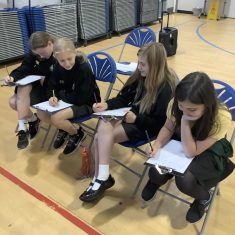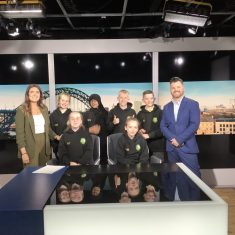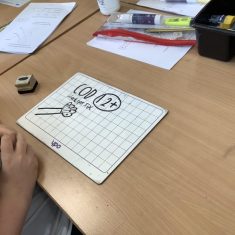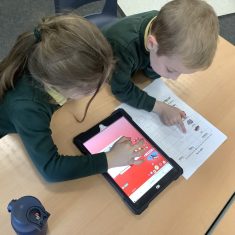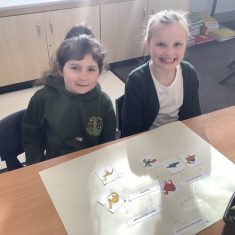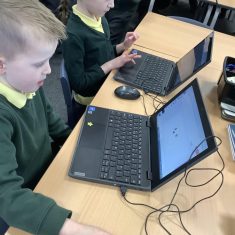Our Vision

Mr Hockaday – Year 5b Teacher / Computing Lead
At Harlow Green Community Primary School we aim to provide our children with the skills, creativity and enthusiasm to live and thrive in a world increasingly dependent on computing. Computing is an integral part of everyday life and will play an immeasurable part in our children’s futures. Through computer science, we will teach our children how digital systems work, and how to put this knowledge to use through programming. Alongside programming, children will learn to become digitally literate through discreet teaching of key skills in computing lessons and to provide opportunities for pupils to apply and consolidate their capability across all curriculum contexts. We will strive to provide an environment where access to suitable, up-to-date equipment and emerging technologies is natural and commonplace. We understand our responsibility to work in partnership with parents to ensure that all children are able to evaluate the benefits and risks of technology, its impact on society and how to manage their use of it safely and respectfully.
Aims
The national curriculum for computing aims to ensure that all pupils:
- can understand and apply the fundamental principles and concepts of computer science, including abstraction, logic, algorithms and data representation
- can analyse problems in computational terms, and have repeated practical experience of writing computer programs in order to solve such problems
- can evaluate and apply information technology, including new or unfamiliar technologies, analytically to solve problems
- are responsible, competent, confident and creative users of information and communication technology.
Key Stage 1
Pupils should be taught to:
- understand what algorithms are; how they are implemented as programs on digital devices; and that programs execute by following precise and unambiguous instructions
- create and debug simple programs
- use logical reasoning to predict the behaviour of simple programs
- use technology purposefully to create, organise, store, manipulate and retrieve digital content
- recognise common uses of information technology beyond school
- use technology safely and respectfully, keeping personal information private; identify where to go for help and support when they have concerns about content or contact on the internet or other online technologies.
Key Stage 2
Pupils should be taught to:
- design, write and debug programs that accomplish specific goals, including controlling or simulating physical systems; solve problems by decomposing them into smaller parts
- use sequence, selection, and repetition in programs; work with variables and various forms of input and output
- use logical reasoning to explain how some simple algorithms work and to detect and correct errors in algorithms and programs
- understand computer networks including the internet; how they can provide multiple services, such as the world wide web; and the opportunities they offer for communication and collaboration
- use search technologies effectively, appreciate how results are selected and ranked, and be discerning in evaluating digital content
- select, use and combine a variety of software (including internet services) on a range of digital devices to design and create a range of programs, systems and content that accomplish given goals, including collecting, analysing, evaluating and presenting data and information
- use technology safely, respectfully and responsibly; recognise acceptable/unacceptable behaviour; identify a range of ways to report concerns about content and contact.
